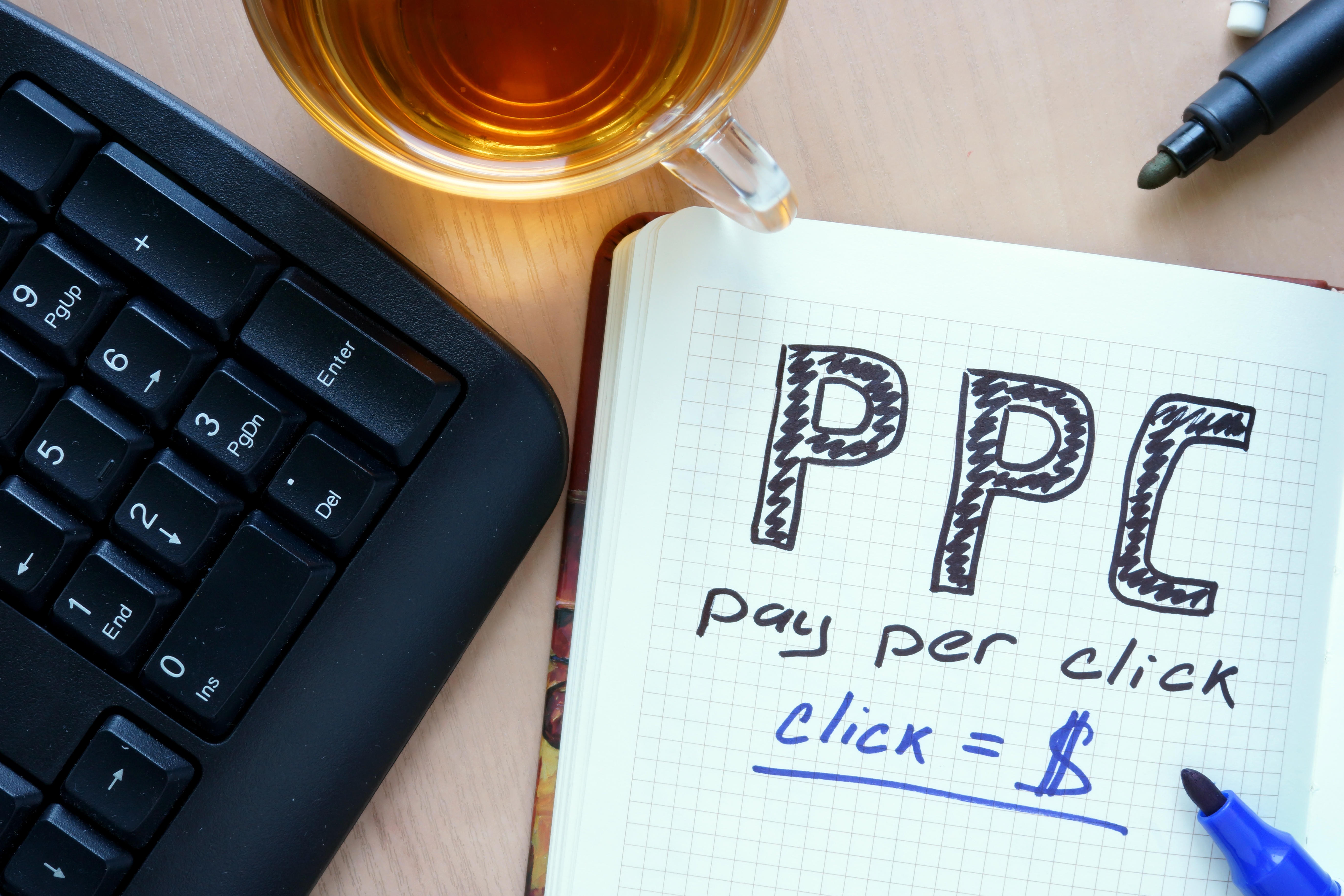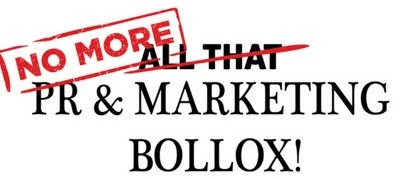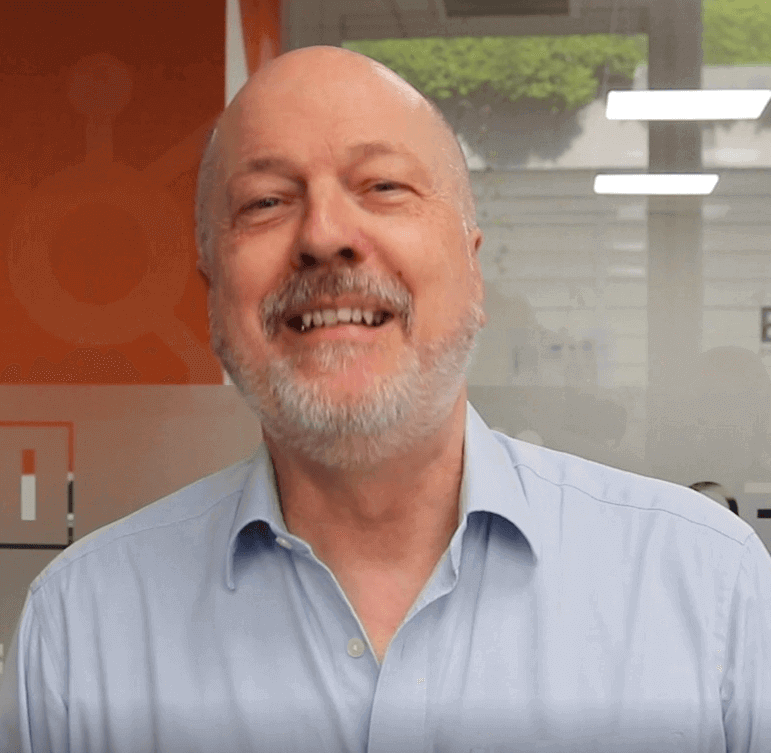

When it comes to increasing traffic to your website via search engines, improving your “organic” traffic through SEO is a great place to begin. However, if you want to be competitive in the online marketplace, you certainly can’t stop there. ‘Pay Per Click’ advertising, or ‘PPC’, is essential if you want to maximise all the avenues available to you when it comes to increasing valuable traffic to your website, and in turn, increasing the level of engagement through your website.
Anyone who uses Google runs into PPC advertising nearly every time they execute a search online. However, fewer people actually understand how the mechanism works. As you might have guessed from the earlier series of blogs about the power and dominance Google exerts over the online world, the search engine giant certainly makes its own rules when it comes to this service. So let’s take take a look at just how PPC plays out in practice.If you execute a search on Google for just about anything, the first four results at the top of the page will almost invariably have been paid for. A Google search page is such a common sight that some people don’t even notice this, but if you look closely, you’ll see that each of those paid slots have a small, (currently green) icon that designates them as a paid ad. The order in which these paid advertisements appear is determined on an auction basis. Every time someone does an individual search, the Google AdWords algorithm will work out what order to display the adverts in. This will probably change every time a search occurs, as it is based on two factors: one, how much each bidder has indicated they are willing to spend, and two, something called the ‘Quality Score’ (which I will discuss later).
"Every time someone does an individual search, the Google AdWords algorithm will work out what order to display the adverts in."
When the algorithm finishes its computation and the results are displayed, there is no charge for the advertisement unless someone clicks on the link. The difference between your advert being displayed and your advert being clicked upon is described as: an ‘impression’ and a ‘click-thru’. Impressions are still valuable, as it has been shown that many people click on the organic ‘free’ link having seen the impression in the ‘paid’ advertising as well as the organic search result. So impressions are when a searcher simply sees your website’s ad appear on the list of results. Clicks are when they choose to actually ‘click thru’ and visit your site. Your Google AdWords account is only debited if a searcher actually clicks thru, whereas impressions – while still useful – cost the bidder nothing.
As you can see, this is predominantly a numbers game and is primarily based on who has the deepest pockets. Because of this, it serves the somewhat unintended purpose of indicating which companies or websites are the main players in a given industry. If you search for a term that’s relevant to a competitive marketplace it’s likely that the key players in that space will have ads displaying.
Despite its competitive nature, the value of PPC lies in being able to direct a visitor to exactly where you want them to land on your website. As a bidder in Google AdWords, you can say precisely where on your site you want to send a user (whereas with organic search, you can’t guarantee where someone will arrive on your website when they land, because the final decision on which of your pages is displayed in the results of search is Google’s). Of course, different searchers have different reactions to PPC vs. organic results. Some people, when met with a search result labelled as an “Ad”, will automatically ignore it. However, in order to syphon the benefits of paid search, you need to integrate it as a method of reinforcement for your organic search results. If a searcher sees that you’re in both organic search results and paid results, they will feel reassured that you’re a main player in the industry and not just because you’ve paid to be there.
It is important that we also explain here the second factor, ‘Quality Score’, as this is an important term from Google’s perspective. Quality Score is defined by Google as: “an aggregated estimate of how well a keyword has performed overall in past ad auctions. Based on this data, each of your keywords gets a Quality Score on a scale from 1 to 10, where 1 is the lowest score and 10 is the highest.” The careful construction of your ad groups, that is, putting your key search terms into appropriate groupings and the relevance of your ads and the rate at which people click thru to the ads and the fact that they do not click away immediately, is an important contributing factor alongside your financial bid for a search term. Getting your quality score right can actually lead to a reduction in the amount of money that you need to spend with Google.
This may all sound somewhat complex, however, if I want my business to be discovered through Google or one of the other search engines such as Yahoo or Bing, I simply have to bid, right? But there’s an important point to be made here about the competitive nature of PPC. If you are a small business, you could be willing to spend your entire marketing budget on PPC, and many people do. But that doesn’t guarantee your ads will generate more business leads.
A successful PPC campaign should be considered as part of a successful SEO strategy because outbidding your competition becomes significantly more challenging when in a highly competitive market. For example, customer relationship management: this is one of the most difficult and expensive Google AdWords search terms because this market is dominated by three of the world’s largest software houses: Microsoft, Salesforce and Oracle. Therefore, when there are three giants involved, things can get pretty expensive!
If you are involved in such markets, it will probably be better to focus on your organic SEO strategy, and look for long-tail keywords - which I have mentioned earlier, as head to head competition on an individual specific keyword or phrase can be prohibitively expensive. Always consider less competitive search terms and the impact of long-tail keywords when you’re first starting out. As you optimise your site, PPC can be used as a method of delivering site traffic from these keywords whilst you wait for your rankings to improve.
Finally, don’t just get hung up on one or two phrases! Look at building an extensive list of search terms to get the results you are looking for. And remember, that you have to think like the person who will be searching for you - remember that phrases like, “I want to buy a …….” are longer but much more valuable than a general term!
Tip #34: PPC is a marketplace, but you can’t always simply buy your way to the top. Think about your keywords and consider longer and shorter terms!
If you'd like to receive the latest 'All that PR & Marketing Bollox...Explained!' blogs straight to your inbox every week, you can subscribe below:




Submit a Comment